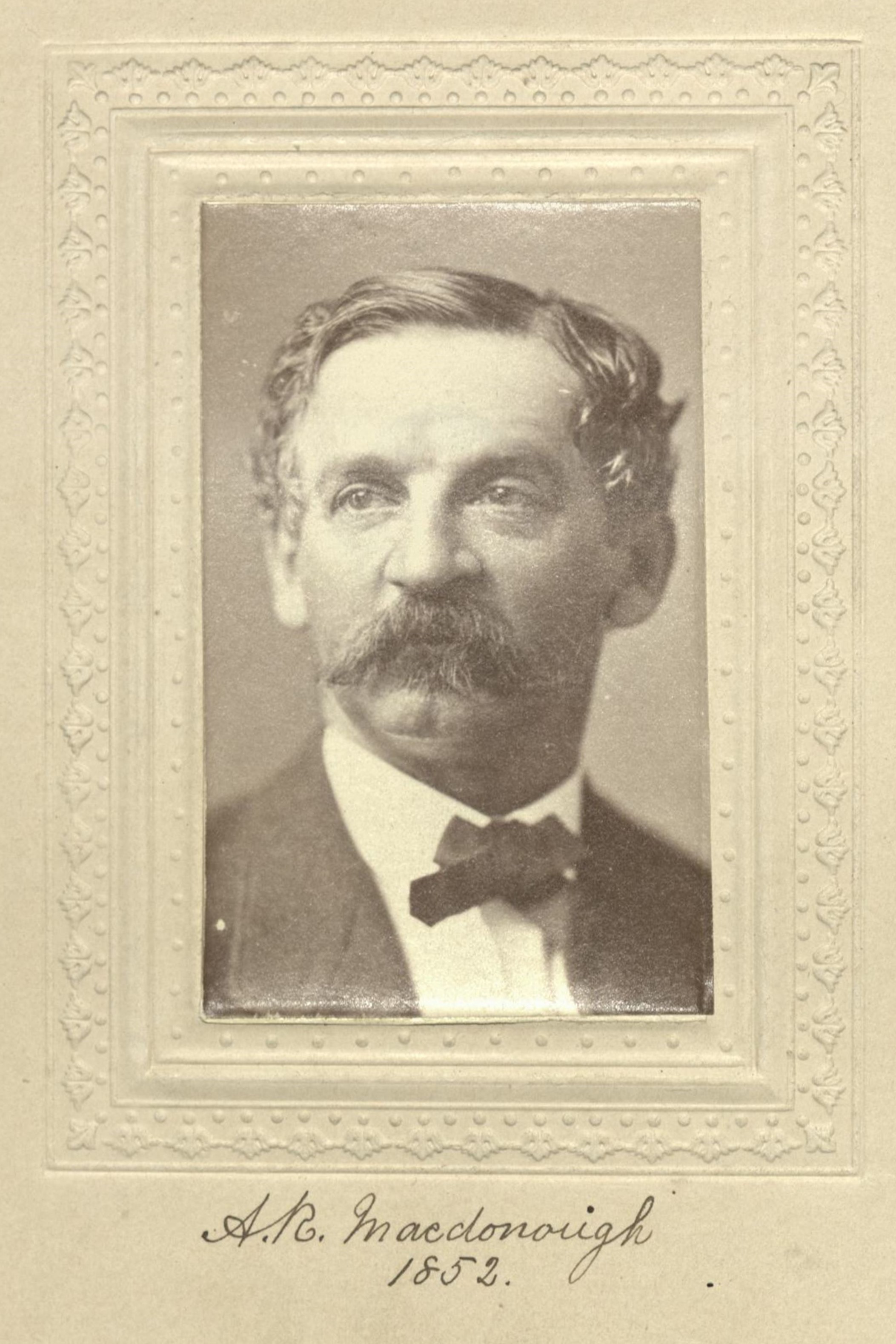Lawyer/Railroad
Centurion, 1852–1907
Born 20 November 1820 in Middletown, Connecticut
Died 21 July 1907 in New York (Manhattan), New York
Buried Indian Hill Cemetery , Middletown, Connecticut
, Middletown, Connecticut
Proposed by Daniel S. Appleton
Elected 6 November 1852 at age thirty-one
Archivist’s Note: Secretary of the Century Association, 1859–1885; designated an honorary member in 1886
Proposer of:
- L. Seymour Ashley
- Russell N. Bellows
- O. P. C. Billings
- S. S. Conant
- Samuel B. Dana
- Chauncey M. Depew
- Henry Dudley
- Jonathan Edwards
- Richard C. Fellows
- Charles King Gracie
- John Greenough
- John Hay
- Charles H. Hunt
- James Kent
- Edward King
- John King
- Manton Marble
- Cortlandt Parker
- Beverley Robinson
- John Rogers
- Eben Briggs Thomas
- William Tracy
- Aaron J. Van der Poel
- John Lester Wallack
- Samuel Wetmore
- Leroy M. Yale
- John E. Zimmerman
Seconder of:
- Lawrence Barrett
- Karl W. Buchholz
- N. W. Stuyvesant Catlin
- Robert W. Chambers
- Walter De F. Day
- David Duncan
- James F. Dwight
- Charles Emott
- Charles F. Fearing
- George H. Forster
- Henry H. Gorringe
- Elial F. Hall
- Henry G. Harrison
- Woolsey Johnson
- Duncan McMartin
- Charles H. Ogden
- Duncan A. Pell
- Gifford Pinchot
- Frederick Sheldon
- Thomas D. Sherwood
- Alexander T. Stewart
- Charles Edward Tracy
- James M. Varnum
- Edward F. Winslow
Supporter of:
Century Memorial
Augustus Rodney Macdonough, son of the famous commodore, was eighty-seven years old [sic: eighty-six] when he died and had been for fifty-five years a Centurion, always an honored member, and in token thereof for twenty-one years an honorary member likewise, of this Association. A graduate of Yale, a successful lawyer, and a trusted official of a great railway, his life was worthy of his ancestry. To the great reform of the Civil Service he gave time and energy, to the appreciation of what was best in letters and art he gave all his leisure. The very mention of his name recalls to many, who still rejoice in the sound of a voice that is still, the presence of the man. You felt the reason why for twenty-seven years he had graced the office of secretary to the Century Association. Standing in this station, his easy grace, his earnest manner, his weighty words, made him almost an incarnation of the Century spirit as he felt it: to wit, the repose, the self-restraint, and the cheerfulness of a generation and a society which took itself seriously, convinced that justice, truth, and honor, though absolute, were yet attainable in high degree by human effort, in chivalric contest, and through high-hearted confidence. If in this Association and its members the devoted spirit of service still survives in larger measure than elsewhere, we owe the meed of recognition to the faithfulness of Macdonough throughout his long term of office. When the fathers were setting the pace, fighting for high principle, taking both counsel and refreshment together in our rooms, and though ungirt were making ready for new campaigns of righteousness, he caught the subtle spirit of an inspired age and was trusted by that powerful company to mark its advances and its goals.
William Milligan Sloane
1908 Century Association Yearbook

